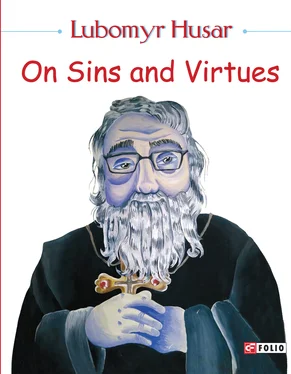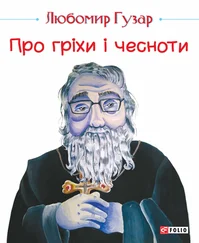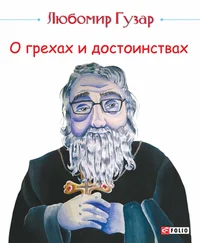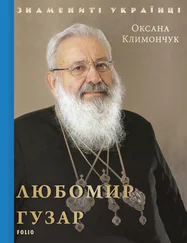Maria Ruban, 10 years old, Izyum (Kharkiv region)
To be grateful is to acknowledge that someone did good to me, and to do justice to that person. Particularly if that deed was selfless, done for my benefit only, and could even do harm to the person who did it.
When I thank somebody, I express my gratitude aloud. The ability to be grateful and thankful is a very nice and noble merit.
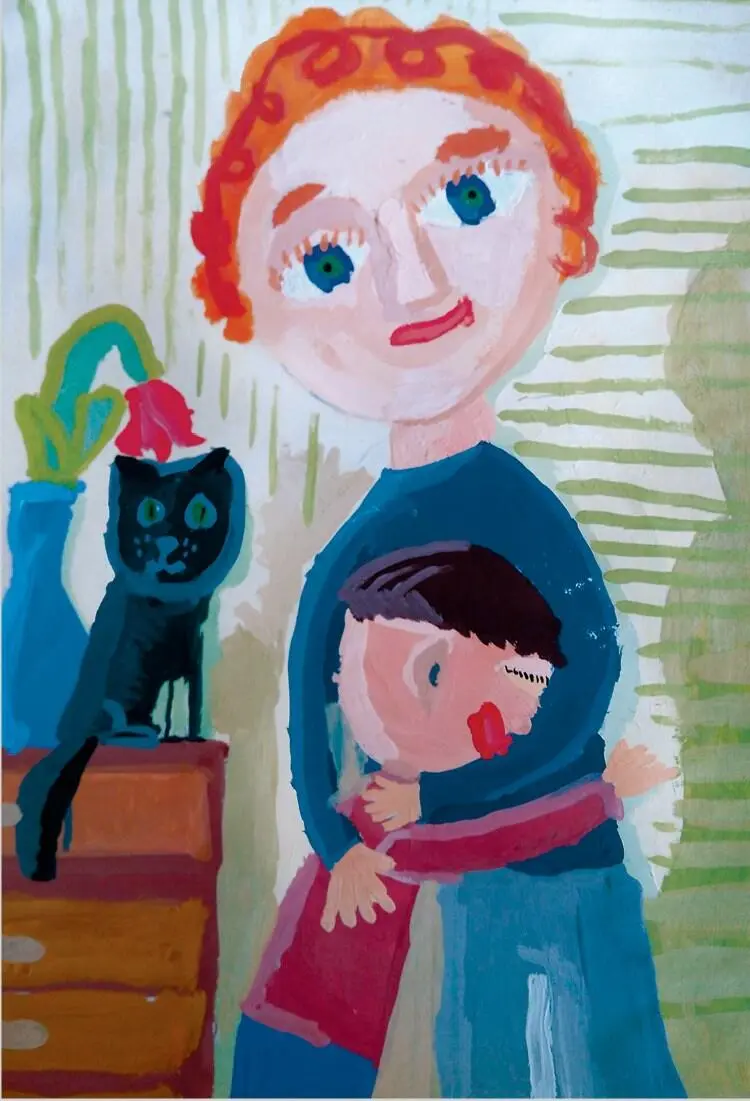
Gratitude
Nazar Prus, 11 years old, Lviv
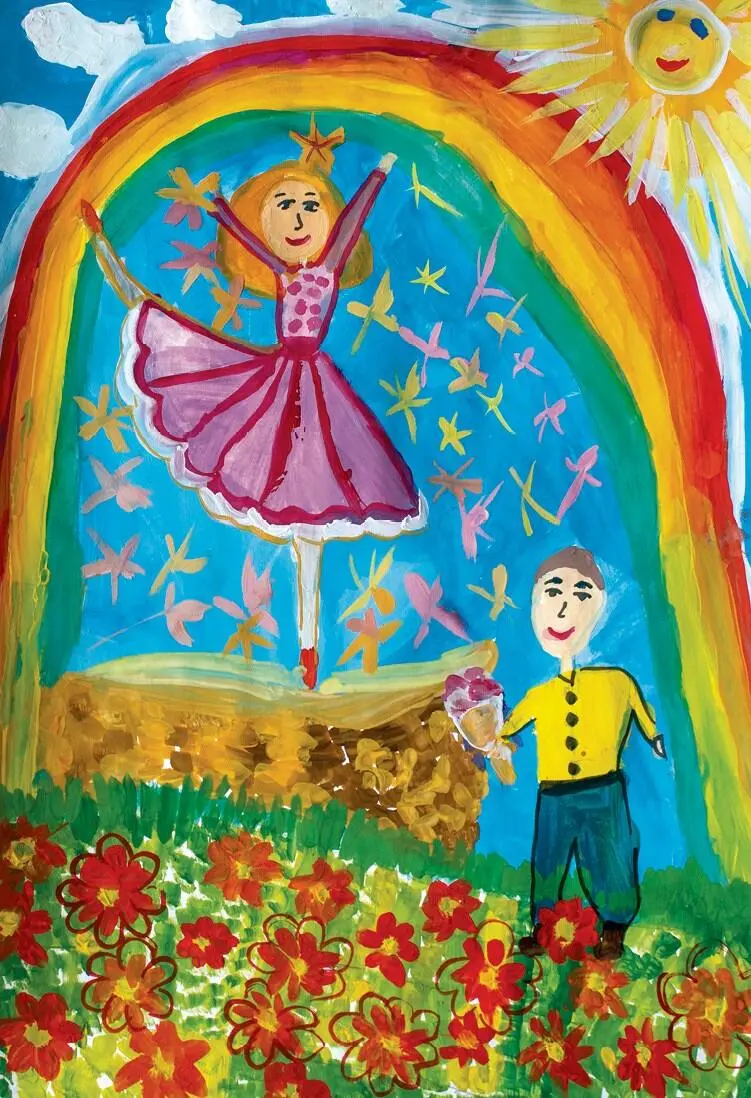
Bravery.
Anastasia Veres, 6 years old, Halych (Ivano-Frankivsk region)
What does it mean to be brave? To have the courage to do good. Sometimes we lack courage to confess who we are. We do not dare cross our heart not to be laughed at, we do not dare speak of God not to be mocked. Bravery is the courage to be oneself.
You know, people may be thoughtless, they can fly off the handle and push into danger. This is not bravery, it is stupidity. Genuine bravery is when I feel I have to behave in a particular way, considering all objective circumstances – even though I don’t know what will come out of it. For example, I admit that I am a Christian and I am determined to do good even if people laugh at me.
This is a kind of positive and practical bravery – and not thoughtlessness or a desire to show off my readiness to face a risk for a vain glory.
In our liturgical prayers we often ask God to give us enough daring to appeal to Him. So to say, a courage of trust. Like a child appealing to his father.
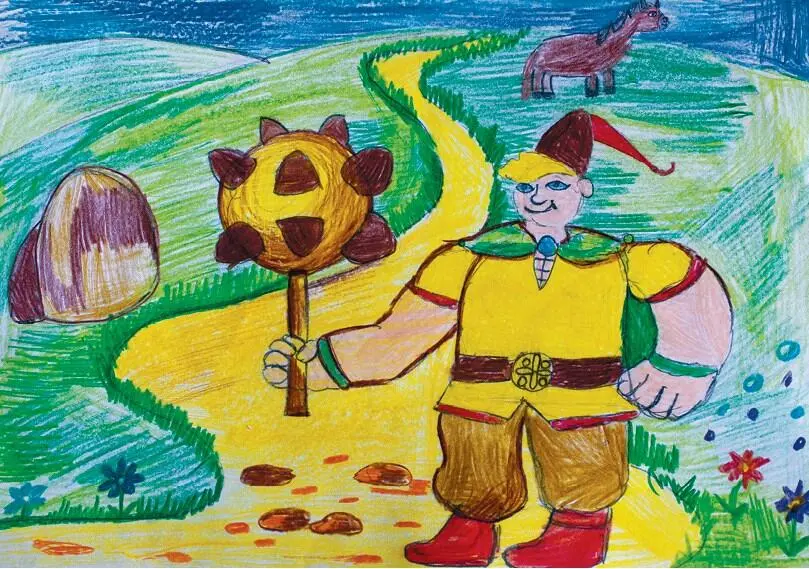
Bravery.
Yaroslav Murafa, 10 years old, Halych (Ivano-Frankivsk region)
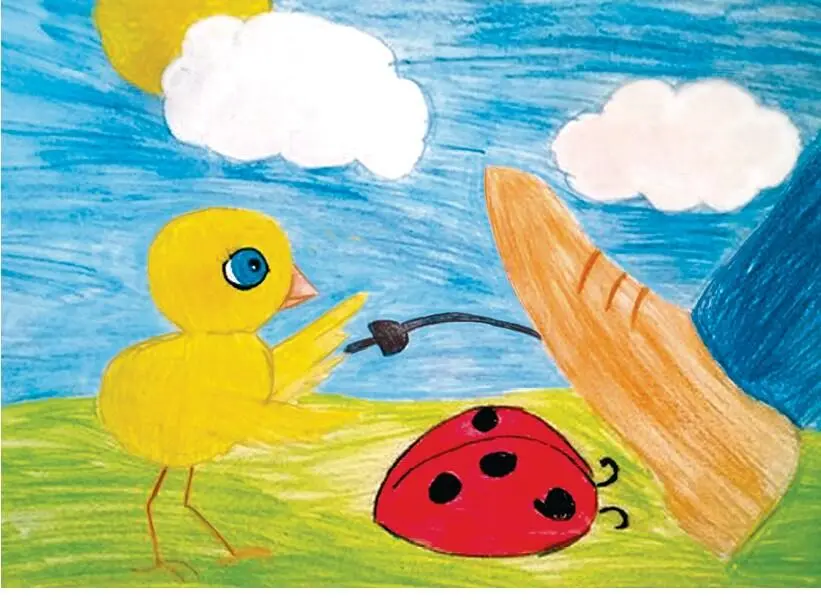
Bravery.
Sofia Lozova, 12 years old, Kyiv
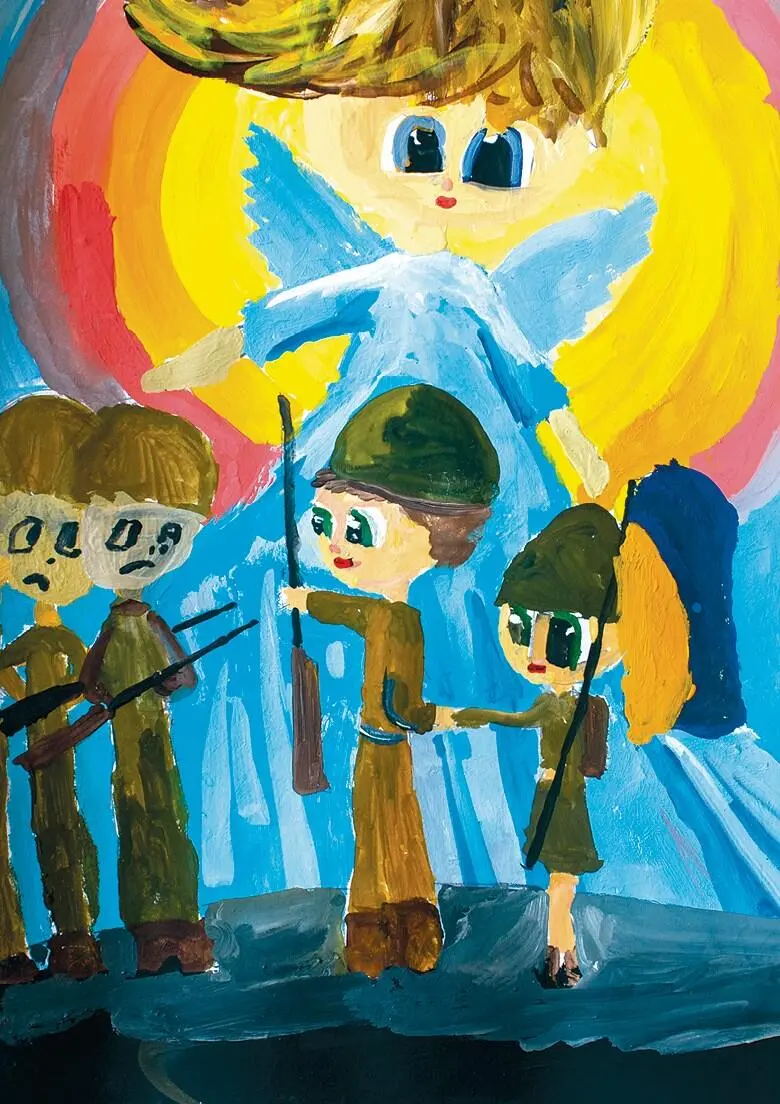
Bravery.
Diana Kovtun, 11 years old, Halych (Ivano-Frankivsk region)
Because when we speak to strangers we often feel embarrassed to ask for something. Whereas a child addresses its father simply and clearly: dad, I am hungry, dad, I need something… Our Church encourages us to appeal to God in that same way: God, listen to me, God, help me. In other words, not to feign anything before God, but just appeal to him : God, I am in pain, help me, listen to me.
We often lack such blessed innocence and trust – the holy simplicity. Some say: how can I speak to God so simply?
Speak to Him simply! That is the courage of trust in God, and the realization that God is my best friend.
Dignity is what we received from God. A sense of truth is one of its main features. Dignity is not what we thought up for ourselves or ascribed to ourselves. Because it is a manifestation of human nature – of the divine inside us.
Dignity is connected with the perception and awareness of our origin. Our divine origine… Some can take pride in originating from a princely family. But that is another matter.. Dignity has to do, first and foremost, with belonging to the divine. Because man is created in the image and likeness of God.
God gives us the gift of life through our parents, our vocation and talents, and through the gift of the Holy faith.
The Revolution of Dignity also has to do with this important sense of awareness. Ordinary people realized who they are and which rights they are vested with – because they originate from God. Human dignity is inseparably connected to the awareness that a human being is the creation of God.
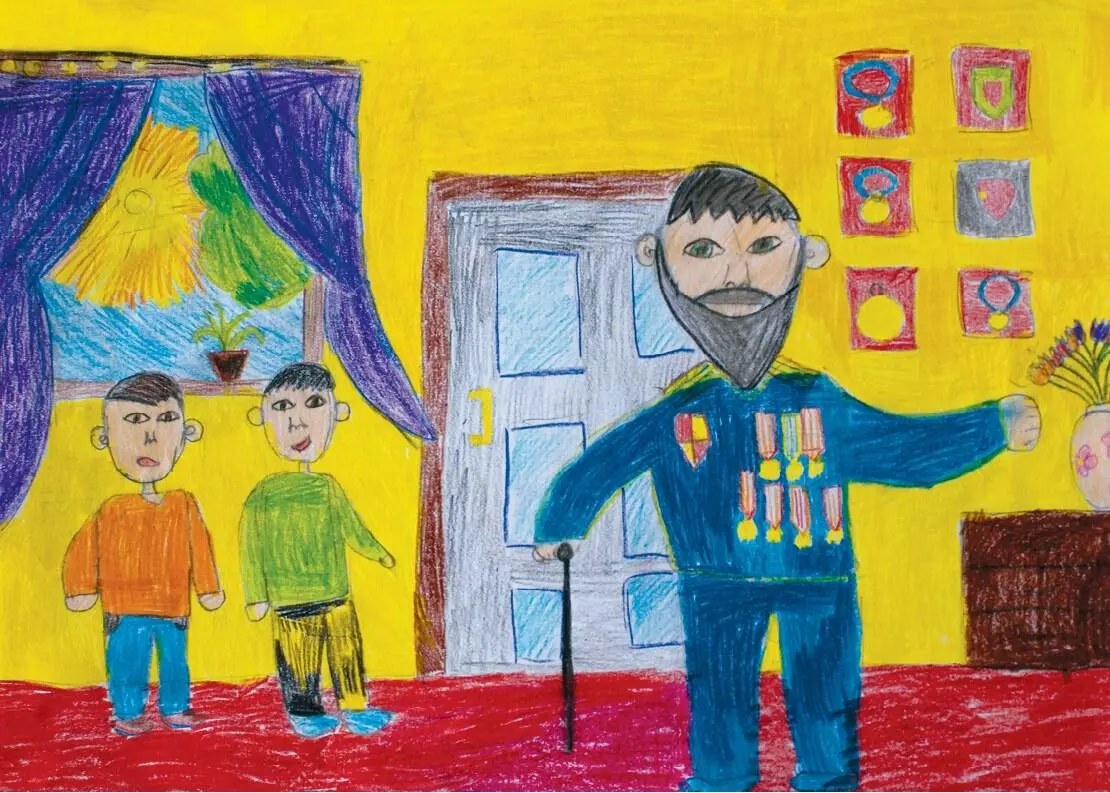
Dignity.
Yaroslav Murafa, 10 years old, Halych (Ivano-Frankivsk region)
We often say about somebody: he behaves with dignity… It means that the mentioned person is aware of their dignity.
Dignity is not to be confused with pride or even haughtiness – this is about a person who believes he is unique in the world and that there is noone like him, and will never be.
Dignity is not pride. It is not like “I am too good and deserving to do things like that…” No, it is like “I am a human being, a creation of God, endowed with the God’s gifts, I am aware of my dignity, so I behave in a way not to offend others by saying “I am a lord and you are a fool”.
For example, Metropolitan Sheptytskyi could talk to anyone. To high ranking officials, to nobles and ordinary peasants and labourers. He respected everyone. And all of them while talking to him were aware: he regards me as a human being.
The gift of mind, the gift of will and of freedom given to us by God – they all are part of human nature. And we are all happy to have those gifts – each of us is endowed with them. There is no man who isn’t endowed with them. Since I am a human being, I have all the gifts that God gives to everyone.
One of our Lord’s commandments says: you shall love your neighbour as yourself. To love one’s neighbour as oneself means to see in them the same dignity I have in myself, since I am happy to know that I originate from God and I live by His will because it was Him who created me. Likewise, He created all others.
Those two conformable words “self-esteem” and “selfishness” which are about a “love for oneself” have nothing to do with the love Jesus Christ spoke about. These notions refer to the ones who gratify themselves, pander to themselves, and treat themselves with too much indulgence. But the love that Jesus Christ appointed to us – is nothing else but the sense of dignity.
A person can be born at the royal court or in a peasant hut. It makes no difference because both of them are of the divine origin and are endowed with dignity which is to be respected.
Everyone has a duty to take care of something or someone. Since he who doesn’t have a duty – doesn’t feel it necessary to do anything useful, he doesn’t bare any responsibility and doesn’t have a goal of reaching any particular results.
It is one thing when I am reluctant to impose myself on others. But if I am not willing to take any responsibility just because I feel more comfortable that way – it is a very serious blemish.
Jesus Christ said: “You shall love your neighbour as yourself”. But to love oneself doesn’t mean to seek gain for oneself. It means to respect oneself, because our Lord created us all intelligent, he gave us dignity, lots of talents and a calling. If I got all of these, it means all other persons got it all as well. Thus, to love my neighbour means to respect him in a way I want to be respected by him. Because I respect myself, I respect myself as our Lord’s creation, as our Lord’s child, as a human being who thinks, behaves responsibly and takes into account other persons’ needs, who is not indifferent to those who surround me, and who, therefore, respects others because they are God’s creatures just just like me.
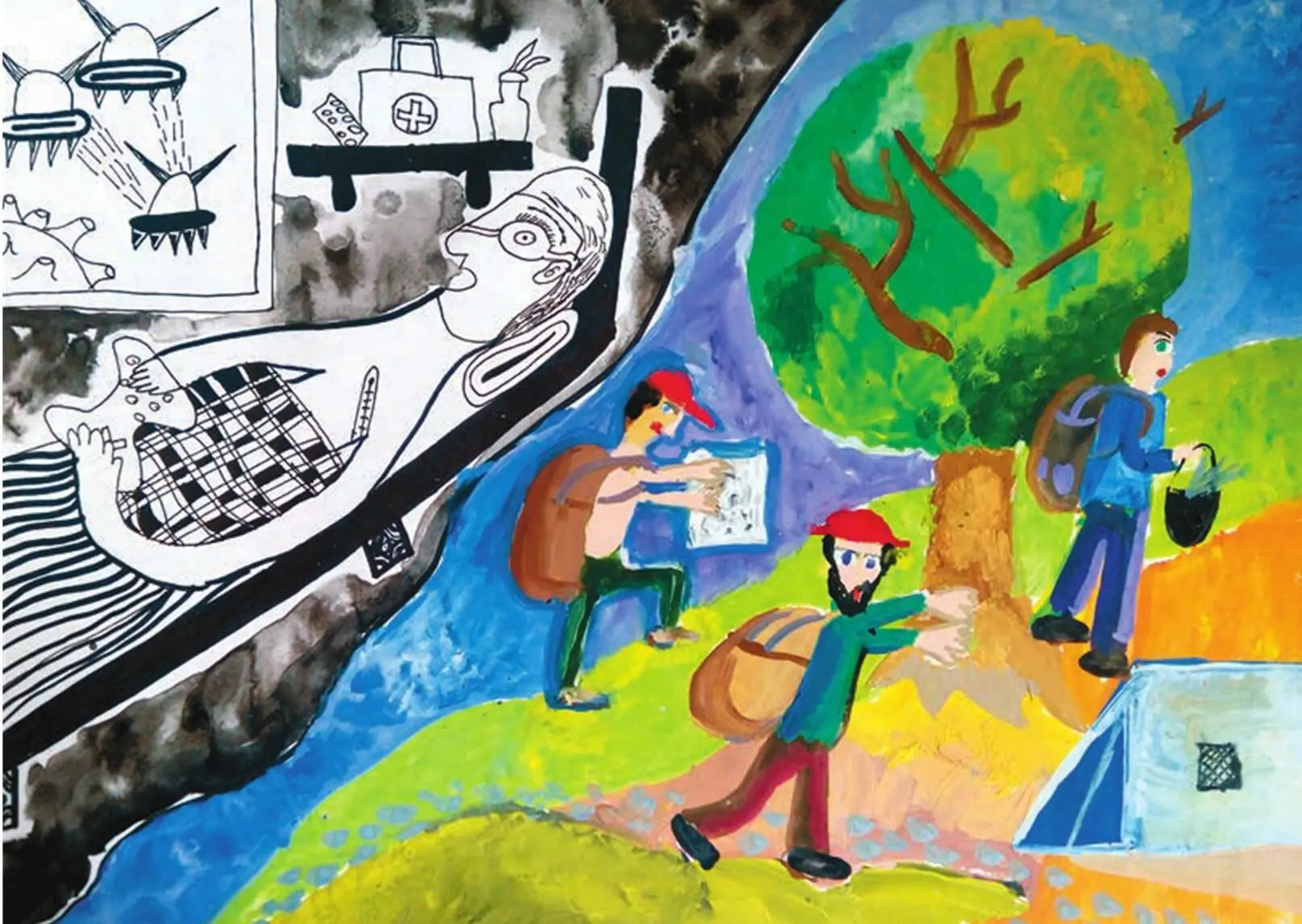
Laziness.
Читать дальше
